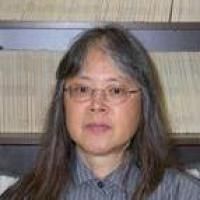A Bayesian Approach to Inferring Rates of Selfing and Locus-Specific Mutation.
Date
2015-11
Journal Title
Journal ISSN
Volume Title
Repository Usage Stats
views
downloads
Citation Stats
Attention Stats
Abstract
We present a Bayesian method for characterizing the mating system of populations reproducing through a mixture of self-fertilization and random outcrossing. Our method uses patterns of genetic variation across the genome as a basis for inference about reproduction under pure hermaphroditism, gynodioecy, and a model developed to describe the self-fertilizing killifish Kryptolebias marmoratus. We extend the standard coalescence model to accommodate these mating systems, accounting explicitly for multilocus identity disequilibrium, inbreeding depression, and variation in fertility among mating types. We incorporate the Ewens sampling formula (ESF) under the infinite-alleles model of mutation to obtain a novel expression for the likelihood of mating system parameters. Our Markov chain Monte Carlo (MCMC) algorithm assigns locus-specific mutation rates, drawn from a common mutation rate distribution that is itself estimated from the data using a Dirichlet process prior model. Our sampler is designed to accommodate additional information, including observations pertaining to the sex ratio, the intensity of inbreeding depression, and other aspects of reproduction. It can provide joint posterior distributions for the population-wide proportion of uniparental individuals, locus-specific mutation rates, and the number of generations since the most recent outcrossing event for each sampled individual. Further, estimation of all basic parameters of a given model permits estimation of functions of those parameters, including the proportion of the gene pool contributed by each sex and relative effective numbers.
Type
Department
Description
Provenance
Citation
Permalink
Published Version (Please cite this version)
Publication Info
Redelings, Benjamin D, Seiji Kumagai, Andrey Tatarenkov, Liuyang Wang, Ann K Sakai, Stephen G Weller, Theresa M Culley, John C Avise, et al. (2015). A Bayesian Approach to Inferring Rates of Selfing and Locus-Specific Mutation. Genetics, 201(3). pp. 1171–1188. 10.1534/genetics.115.179093 Retrieved from https://hdl.handle.net/10161/21887.
This is constructed from limited available data and may be imprecise. To cite this article, please review & use the official citation provided by the journal.
Collections
Scholars@Duke

Liuyang Wang
Leveraging bioinformatics and big data to understand the intricacies of human diseases.
My overall research goals are centered on unraveling the molecular mechanism underpinning human disease susceptibility and harnessing these findings to innovative diagnostic and therapeutic strategies. I have adopted a multidisciplinary approach that integrates genomics, transcriptomics, and computational biology. Leveraging high-throughput cellular screening and genome-wide association study (GWAS), we have successfully identified hundreds of genomic loci associated with 8 different pathogens (Wang et al. 2018). Utilizing single-cell RNA-seq, we developed scHi-HOST to rapidly identify host genes associated with the influenza virus (Schott and Wang, et al. 2022). I also have developed several novel statistical tools, CPAG and iCPAGdb, that estimate genetic associations among human diseases and traits (Wang et al. 2015, 2021). Combining experimental and computational approaches, I expect to gain a deeper understanding of the genetic architecture of human susceptibility to infection and inflammatory disorders.

Marcy K. Uyenoyama
Marcy Uyenoyama studies mechanisms of evolutionary change at the molecular and population levels. Among the questions under study include the prediction and detection of the effects of natural selection on genomic structure. A major area of research addresses the development of maximum-likelihood and Bayesian methods for inferring evolutionary processes from the pattern of molecular variation. Evolutionary processes currently under study include characterization of population structure across genomes.
Unless otherwise indicated, scholarly articles published by Duke faculty members are made available here with a CC-BY-NC (Creative Commons Attribution Non-Commercial) license, as enabled by the Duke Open Access Policy. If you wish to use the materials in ways not already permitted under CC-BY-NC, please consult the copyright owner. Other materials are made available here through the author’s grant of a non-exclusive license to make their work openly accessible.
